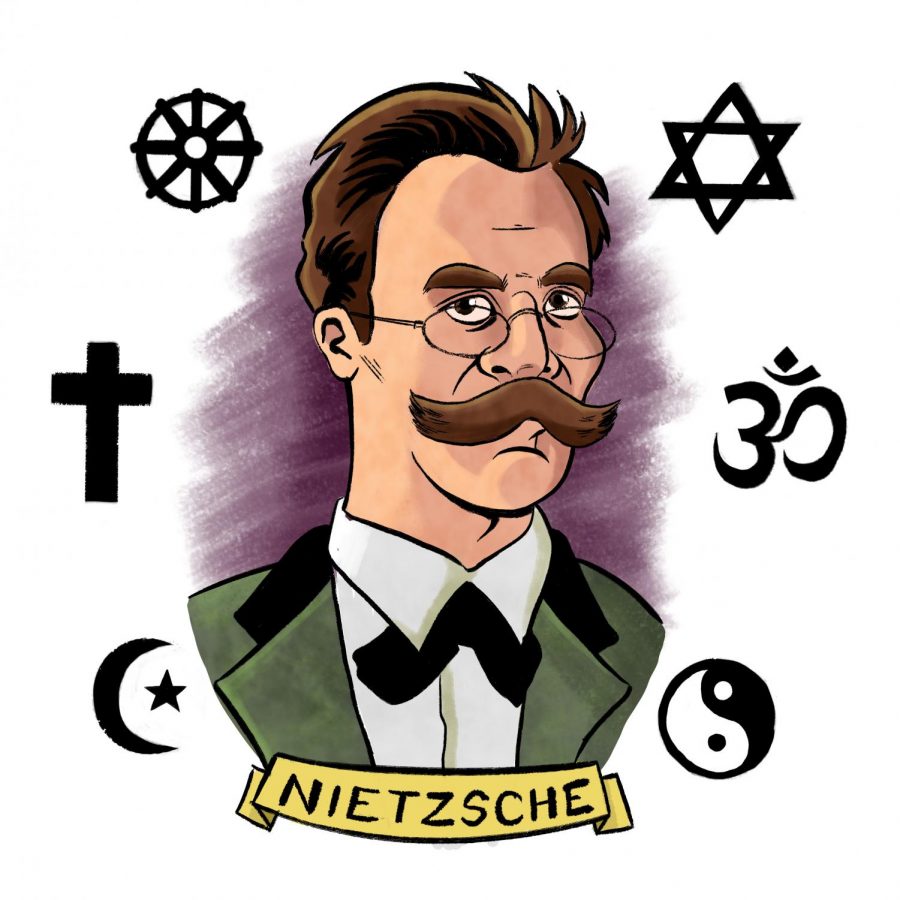Giri: Dismissing religions and belief systems will lead to the demise of mankind
November 6, 2020
The reputation of religion has seen better days. What was once seen as the primary overseer of society is now on its last breath, a shadow of its former self. Moreover, there seems to be no hope of recovery.
As of 2013, 23% of all Americans identified as having no religious affiliation. This figure rose to 34-36% for Millennials, and Generation Z are increasingly looking like the least religious generation in human history. The aversion can be explained by humanity’s gradual acceptance of scientific theory and disregard for religious narratives. Long gone are the days of Adam and Eve, evolution’s acceptance is now taken for granted. Although this may seem to point towards a future with a more rational, logical society, it may actually be a forecast for catastrophe.
In order to grasp this wild claim, consider a possibility for why religion exists in the first place. Human beings, unlike other primates, are able to cooperate in complex societal structures outside of localized pods. In fact, we have built cities capable of housing millions of individuals. So why is it that primitive ape groups struggle to cooperate more than a thousand humans do?
The moral consistency provided by religion’s prominence in our social fabric provides a strong explanation. Two strangers who pass each other on the street do not have to fear for their lives as they both believe in the existence of laws and justice. But the concepts of laws and gods do not exist anywhere except the human mind. In nature, deer always fall prey to lions. This power structure to us would appear unfair, even though it is just a part of the larger biological system. Religious doctrines aren’t ecologically required, but they do establish a common sense of trust amongst a large amount of people.
Establishing a religion is not easy, but when it succeeds, it greatly inspires humans to work towards a common goal. It may be based on an incentive of something fictitious, for instance, the prospect of reaching heaven, but there is no doubt that it achieves tremendous results in human cooperation.
Now considering this impact of common beliefs, what does the impending death of religion mean for the human race? Nineteenth century German philosopher Frederich Nietzsche held many concerns for a religionless future. Nietzsche worried that when people lost belief in religion, individuals would revert to Nihilism—the belief that nothing matters in life. He thought that faith in true world theories fulfilled deep psychological needs. A belief system, after all, especially one that promises a bright future after death, masks the harsh reality of death itself.
Humans are incapable of rationalizing with death, and the death of religions means that we have to finally face this harsh reality. Nietzsche predicted the adoption of Nihilism would reduce humanity’s strength to persevere through miserable conditions. If there is no hope of a better future or a protector up above, what is the point in struggling at all. Nietzsche thought that this belief would eventually cast mankind into disarray—human species needs to believe in something bigger than themselves in order to survive.
We can see some signs of this confusion in modern history, with people turning to more modern forms of belief systems and worldviews to quench their thirst for meaning. For example, the rise of devotion to government systems such as communism and capitalism. Even today in the U.S., people are more devoted to being “left” or “right” in politics than ever before. Could this polarization be due to a collective loss of meaning in the Western world, and a desperate attempt to fill this void?
But all is not doom and gloom. We obviously cannot go back to a world of religion, it is too late for that. According to Nietzsche, it is possible to have meaning in life, but that requires the human race to decide upon a certain set of values and a common goal. He also thought that, eventually, a common belief system removed from the myths and lies of religion would be beneficial for mankind. However, this is easier said than done, as many humans are oblivious to the consequences of a faithless future.
It will be some time until humanity emerges from this religionless confusion. Will we emerge stronger than before? Only time will tell.


